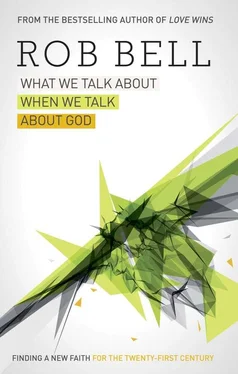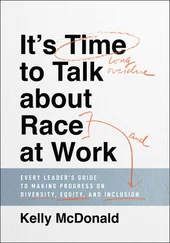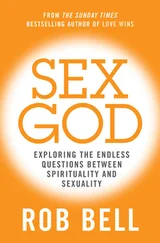Which is true.
But often another perspective came along as well, the one that declared that there is a clear distinction between the material world and the immaterial world, between the physical world and the spiritual world.
What we’re learning from science, however, is that that distinction isn’t so clear after all.
In other words, the line between
matter
and
spirit
may not be a line at all.
In an article about physicists searching for the Higgs Boson, Jeffrey Kluger writes in TIME magazine that they’re “grappling with something bigger than mere physics, something that defies the mathematical and brushes up—at least fleetingly—against the spiritual.”
Now obviously there are scientists who would bristle at any suggestion that this field of study has anything to do with the spiritual, pointing out that it’s not mystical at all but very straightforward science, but for others, brushing up against the spiritual is a great way to put it because the primary essence of reality is energy flow. Things, no matter how great their mass is or how hard or solid or apparent their thingness is, are ultimately relationships of living energy.
This energy isn’t destroyed or created—it simply changes form as it’s conserved. If you’re reading this book in printed form on paper and you were to burn it, the sum total of the book’s energy would not change; it would simply go off and be other things than this book.
The amount of actual energy in the universe would stay the same.
And you wouldn’t find out how the book ends.
Now, from energy,
let’s move to involvement.
In the common view of the world most of us grew up with, there was a clear division between the subject and the object. Think of the stereotype of the objective scientist, standing cool and detached behind a glass wall, jotting observations onto a clipboard about whatever it is being studied. There is nothing wrong with this image; in fact, we owe this kind of thinking and practice a huge debt for the stunning array of technologies and inventions and luxuries we benefit from every day.
Somebody figured out how to fit a thousand songs in our pocket. Well done there.
But this image of detachment,
standing back at a distance,
watching and examining and analyzing things from a perceived place of noninvolvement, lives on in a number of ways that aren’t true.
At the quantum level, to observe the atom is to affect it. The particle is a cloud of possibilities until it’s observed, and then it chooses a particular path. The question you ask light determines whether it will answer as a wave or a particle.
In the view many have been taught,
the world is out there,
stationary and unmoved,
unaffected by us.
But in the quantum world,
observing changes things.
Matter is ultimately energy, and our interactions with energy alter reality because we’re involved, our world an interconnected web of relationships with nothing isolated, alone, or unaffected.
Even when there is an actual glass wall—
as helpful and accurate as traditional scientific
understandings are—
there is no glass wall in the end.
Central to the isolated, detached, common modern worldview is the assumption that things exist in empty space. Us outside, looking in. Studying, analyzing, standing at a distance—observing the world that is out there in empty space.
But the quantum world teaches us that space is—what’s the best word here?—alive. Particles can be found in what appears to be empty space. The invisible substance between us and the things and people around us actually contains something.
We are enmeshed in the world around us, not outside looking in, but inside looking . . . inside.
It’s all energy,
and we’re all involved.
These two truths,
the one about energy and the one about involvement, lead us to a third truth, this one about surprise.
Your toaster doesn’t do what it’s supposed to. Seriously.
As things heat up, they register different colors, each new color representing an increase in temperature. And so, according to the standard assumptions about heat and corresponding color, your toaster should glow blue.
But it doesn’t;
it glows red.
Why?
No one knows.
Which particle will pass through the glass in the shop window,
and which will reflect back? Where will that electron disappear, and when will it reappear—and where?
We can predict,
and we can identify patterns,
but at the most basic level,
we don’t know.
The world surprises us.
And it surprises scientists too,
on a regular basis.
Energy,
involvement,
and
surprise.
I talk about all of this because when people object to the idea of God, to the idea that there is more beyond our tangible, provable-with-hard-evidence observations and experiences of the world, they aren’t taking the entire world into account. A brief reading of modern science quite quickly takes us into all sorts of interesting and compelling places where the most intelligent, up-to-date, and informed scientists are constantly surprised by just how much more there is to the universe.
III. You Dirty Star, You
Which leads us to you,
right there in the middle of it all.
Actually, we are in the middle of it all, with a human being (roughly a meter tall on average, kids included) halfway between the largest size we can comprehend, the width of the known universe, and the smallest size discovered thus far in the universe.
And you,
you are fascinating.
You lose fifty to a hundred and fifty strands of hair a day, you shed ten billion flakes of skin a day,
every twenty-eight days you get completely new skin, and every nine years your entire body is renewed.
(This dead skin we shed makes up 90 percent of household dust. So feel free to vacuum more.)
And yet your body, in the midst of this relentless shedding and dying and changing and renewing,
continues to remember to be you,
strand by strand,
flake by flake,
atom by atom.
Your body is made up of around seventy-five trillion cells, every one of those cells containing hundreds of thousands of molecules with six feet of DNA in every cell containing over three billion letters of coding. These cells are a potent blend of matter and memory—bones and hair and blood and teeth and at the same time personality and essence and predispositions and habits.
You are an exotic combination of matter and memory, with a fine line in between.
Millions of cells, drifting through the universe, assembled and configured and finely tuned at this second to be you, but inevitably moving on in the next seconds to be other things and other people.
The atoms that make you you in this very second may have earlier been part of a stork,
or Mars,
or a mushroom,
or a squid,
or a coconut,
or Ohio,
or Buddha,
or Cher.
Imagine that your uncle died and in his will he left you his beloved old wooden boat. You love your uncle and out of respect for him you decide that you’re going to fix up his old boat, making it good as new. And so you start with the hull, replacing the old boards with new ones. But as you work rebuilding the hull, you realize that the deck needs replacing as well. And so the next year, you remove all of the boards on the deck and replace them with new ones, plank by plank, until the boat has an entirely new deck. But spending all that time working on the deck convinces you that the hardware isn’t reliable; you’re not sure which pieces would work if you were to actually launch the boat, and which would snap with the slightest strain. And so you set out to replace all of the hardware. . . . If you keep this up, at some point you will have replaced the entire boat, and yet when you take your friends out for a ride, you will tell them that this is the boat your uncle left you in his will.
Читать дальше












